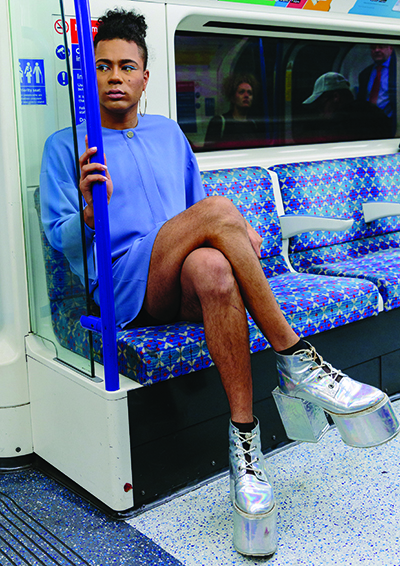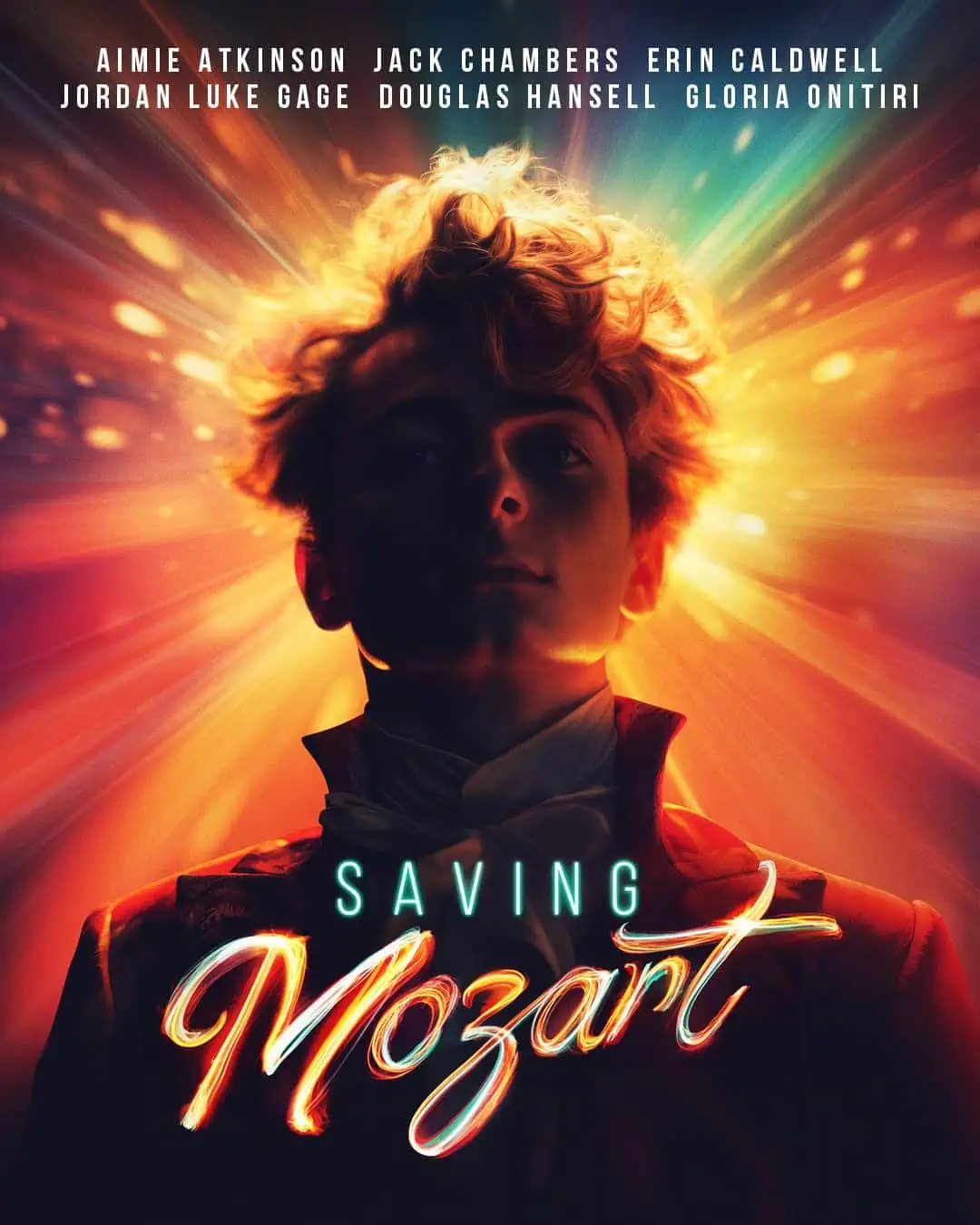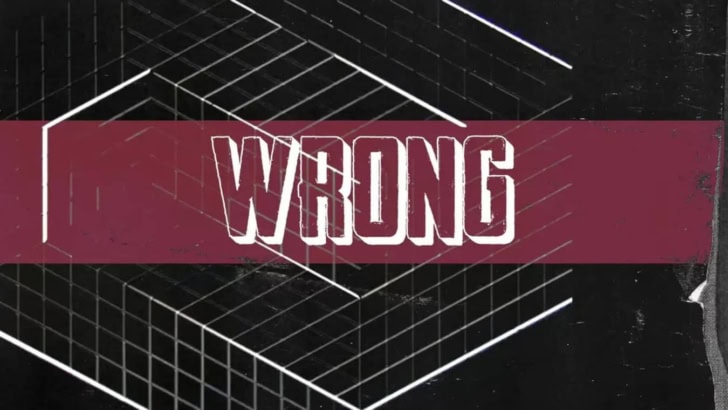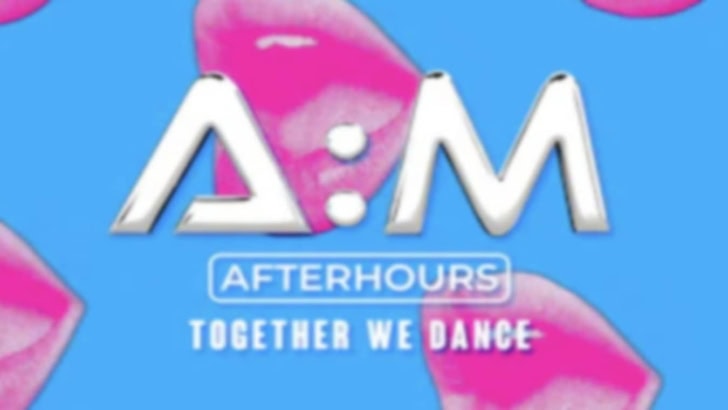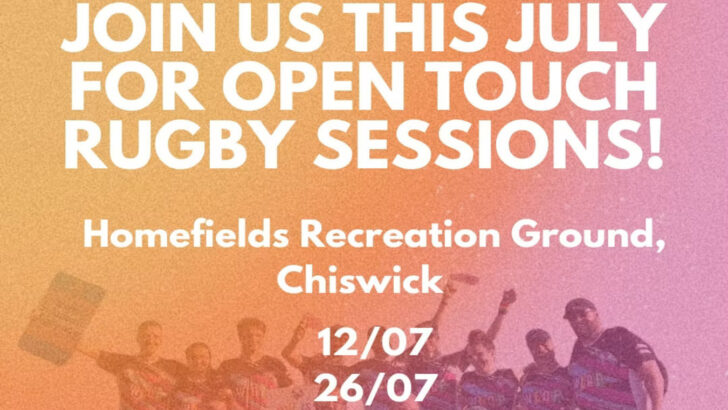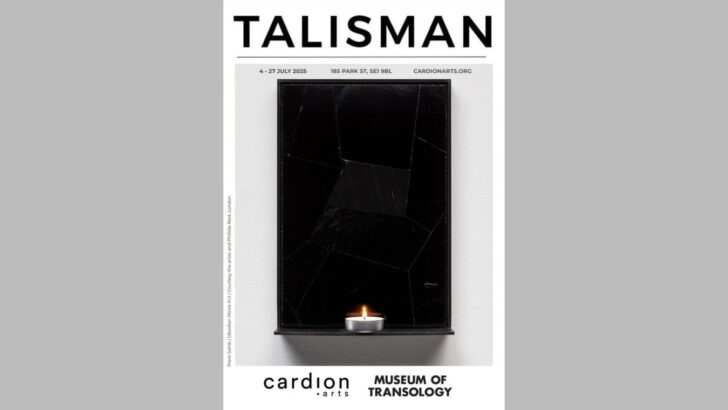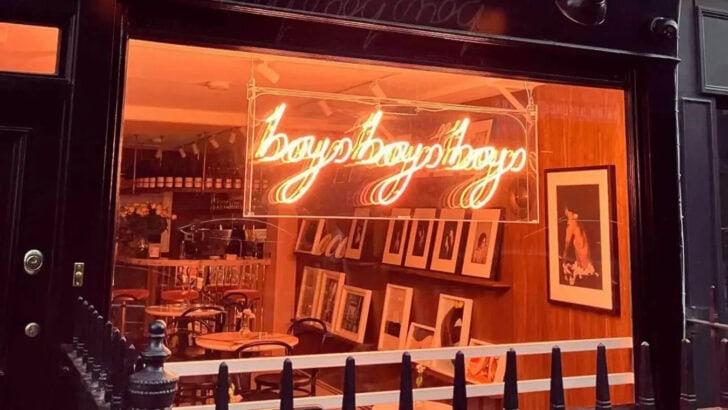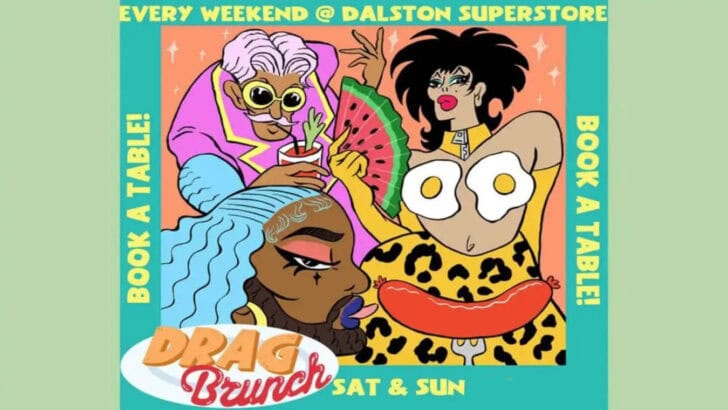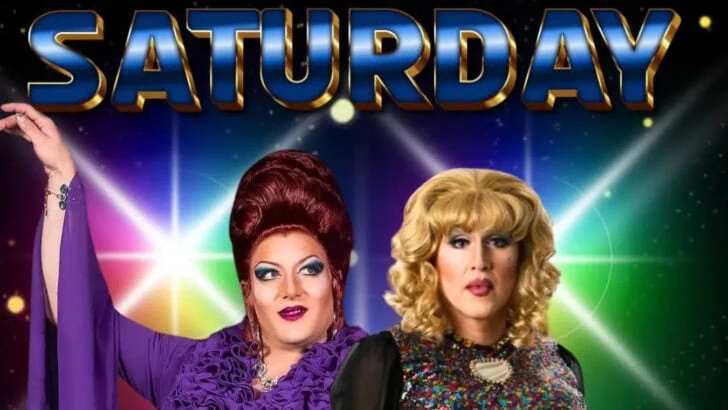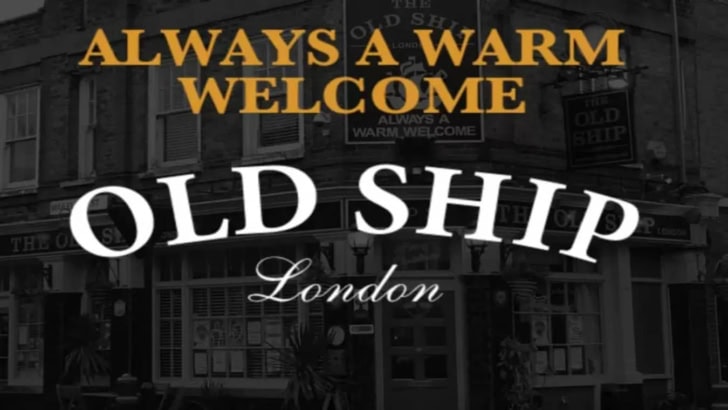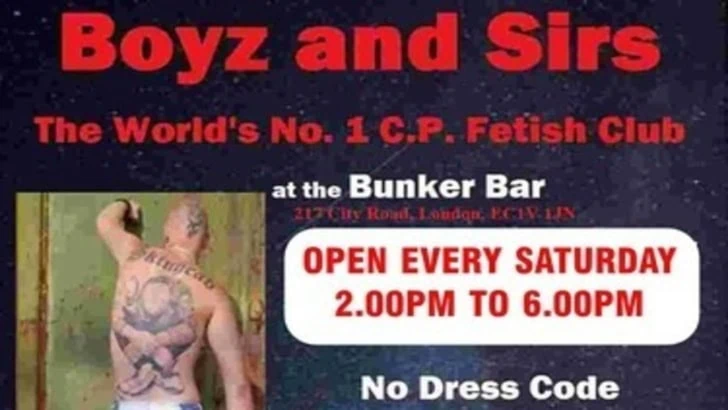Travis Alabanza is one of the most promising and intriguing figures on London’s creative art scene. Ambitious, imaginative and unapologetic, Travis pushes the conventional boundaries of genre and gender to create thought-provoking pieces of art, theatre and literature.
Travis has spoken before about receiving harassment on public transport from strangers. So we decided to turn things on their head by doing a photoshoot on the Victoria Line, transforming a space of stress and animosity into a space of defiance and glamour!
Afterwards, we got an egg & cress sandwich at Starbucks, and discussed Travis’s experiences as a trans person of colour living in London in 2017.
Hey Travis! There’s a piece in your new book called ‘Obstacle.’ Can you tell me a bit more about it?
I wrote it last year, after someone threw a chicken burger at me in broad daylight. It was at 2pm in the afternoon, on Waterloo Bridge. Which is obviously a really busy part of London. I was walking from a photoshoot to a panel, and I didn’t bother to change into a safety outfit. I was just like ‘oh it’s a ten minute walk, whatever.’ I looked at the person who had thrown it, and they just looked back at me blankly. I was like ‘what the fuck, I’ve just had a burger thrown at me.’ Nobody around me did anything. They just kept walking.
That person probably didn’t expect you to look at them. They probably expected you to run away or whatever.
Yeah! Well I was so confused about it. I was like ‘what has actually just happened?’ And then I just got on with my day. I wrote the piece on the train afterwards. A friend asked how my day had been and I was like ‘yeah my day was good, it was busy.’ And I didn’t even mention a burger had hit me. So an obstacle for me was the processing of that moment, and moments before it. That’s what the piece is. Trying to sum up the complexities of living within multiple identities, and what it means to constantly need to be alert. Having a burger thrown at me changed how I navigate in public space.
You used the term ‘safety outfit’ – when was that a concept you became aware of?
When I first starting genderfucking and experiencing my transness more authentically, I was so excited by it all that I would just walk out wearing anything. My friends call it the “Messy Travis Stage”, because I looked like shit! My outfits were crap. I was so unaware of what was happening, until one day, someone spat on me. And then I was like ‘oh, this has been happening for six months, everyone’s been looking at me.’ And since then I’ve taken safety outfits. I think it’s pretty common for trans people to pack an outfit that means they can get from A to B without being harassed. Like today, straight after our shoot I put on some trousers.
I guess it’s for situations when things don’t go the way you think. Like if a bus doesn’t come and you have to walk or something.
Exactly, yeah. I used to not pack them as much, and now I’m so done with it all that I normally travel in safe clothes, and get changed into what I want to wear when I’m at the place I’m going.
A lot of people will be surprised to read this, because loads of people think that in London, you can wear whatever you want.
Yeah, that’s not true. It’s not an ‘if’ or a ‘maybe’ with harassment. If I wear certain things, I WILL be harassed. The question isn’t whether it’s going to happen, it’s more what type of harassment it will be. It’s also about what we count as harassment. Some people count it as shouts and screams. Whereas I’m also talking about stares. I think prolonged staring is a form of harassment. You don’t have to be touched to be harassed.
So speaking of attitudes in London…what do you think of the gay scene’s attitude towards genderqueer and transgender people?
On the surface, it’s fine. I think if we dig deeper, it’s not fine. It’s confusing, because on queer scenes, especially the scenes we’re in, genderfucking is normal; it’s present. I think what we’re not accounting for though, is when genderfucking isn’t just someone’s practice at a nightclub, but it’s also someone’s identity as themselves. We know how to talk about ‘trans’ in a way that equals trans man and trans woman. And we know a certain type of trans narrative. Like ‘oh, this person was X and now they go by Y, and now you’re gonna use ‘she’ pronouns for them…’ We’re very good at that binary way of thinking about transition. But when we delve deeper into our actual trans politics, and politics around gender, it starts to get lazy. It doesn’t account for what’s actually happening with gender.
But I also think the queer scene is paramount to people figuring out their transness. Without it, I wouldn’t have had space to play with my gender. But it does hold it back in some ways too. I’m so aware that some people don’t actually perceive me as trans, because the idea of what ‘trans’ is, is so limited. We think we have to medicalise our transition in order to be seen as trans. And what it feels like to me when people say ‘you have to medicalise it to be seen as trans’ is that they’re saying something is wrong with my body. When actually, I shouldn’t need to do anything to be seen as a woman. We need to redefine womanhood. And gender in general.
I guess it’s people’s need to put everything in a box.
Yeah. And I think queer people think they’re free from this need to put things in boxes, but we’re still completely obsessed with it.
The very idea behind being queer is to reject all of that. So it’s interesting that some queer people are still guilty of doing it.
Right! I say I’m ‘trans’ because there’s a lack of a better word to describe my experience. My real T is that I think everyone’s trans. And that if we lived in a world that was more affirming of gender expression and gender playfulness, we’d realise that cisgender people weren’t really as much of a man as they thought they were, or not really as much of a woman as they thought they were. And that cis people all also exist in this murky middle. But for shortness’ sake, I say trans.
What do you think of the phrase ‘safe space’? Do you think it’s possible to have one?
No. I use the phrase ‘safer space.’ It’s possible to make a space safer. I think ‘safe space’ worked in making people realise neutrality doesn’t equal safety. So you can’t just be like, a nice person, and put on an event, and assume that that space is safe. You have to do active work to make it safer. I don’t actually believe that a space can be a hundred per cent safe. Unless you’re with your friends. And even then, there’s a risk that your friend may say something that upsets you.
But it’s good that people are conscious of the concept now at least.
Yes, because it’s forced people who are having events to think more about ‘what do my toilets look like?’ or ‘what are my security staff like?’ As someone who’s also organised events myself…you have a responsibility as an organiser, but then you also have a responsibility to be honest with yourself and your customers, in realising ‘you know what, as soon as people come through this door, there’s only so much I can create and protect. But I hope I’ve thought about how I’ll respond to certain issues when they happen. But I can’t prevent certain things from happening. I can’t prevent someone from touching someone else’s hair in a space. But what I can decide, is how I then respond to it.’ And that will then make it feel safer as a space. Like, this horrible thing may have happened to you…but at least the management responded really well.
Is there an example of that happening that you can remember?
There was an incident of racism at Not Another Drag Competition at Her Upstairs, and they dealt with it so well. On the night, it was questionable whether the judges addressed it. But the way they dealt with it afterwards, I was like ‘wow.’ And it was really important for me, because I don’t really trust a lot of queer venues. I have a night at Her Upstairs, and it’s a night that isn’t in line with other work that I do. So it’s nice. It was really important for me when they dealt with it so well. Because when it happened I was like ‘this is why I stay distant from these places.’ And then when they dealt with it, I was like ‘oh, ok, that’s really cool.’
So that’s perhaps a sign that things are changing…
Yeah, definitely. I think people are so much more conscious. Sometimes I think people are just more scared? Which is fine, like, if that’s what it takes. I hope we get to a place in people’s politics where we’re not on edge. Everyone’s on edge about saying the wrong thing. I think that’s not when we form our best learning. This is going back on so much stuff that I’ve said in the past, but I think what we need to remember, is that everyone has the power to oppress, and also be oppressed. Anyone. And situations are nuanced. I don’t know, my views on how the scene is dealing with race at the moment…it’s so interesting to watch.
It is! The recent stuff that happened to Munroe Bergdorf is pretty relevant to that. What did you make of it all?
Before we even get to her statement, the first thing to process is that it was screenshotted from someone’s private Facebook. Obviously “private” is in inverted commas, because how private is anything on Facebook really. BUT, it was not a public page. It was a personal page. It wasn’t an article, it was a Facebook status. And in five hours, because of that, someone had lost money. And a job. What we have to process is how quickly that can happen. Black and brown people of certain identities, that disposability, it can happen to us so quickly. It was so interesting because, when she got the campaign and I was celebrating, I was thinking ‘it doesn’t feel like people are gonna be fine with this.’ And what we’ve seen is them saying they’re NOT ok with this, that they don’t actually want a black trans person to represent them, if they also speak. Unfortunately, I wasn’t shocked. That doesn’t mean I had no empathy. I was like ‘this is fucking horrible.’ But as soon as I saw the headline, I knew exactly what was about to play out. There were some positives. The left queer media worked really quickly to put out some incredible work and solidarity in response. And that was really amazing to watch. But I think what it showed, is that visibility means shit. It didn’t protect Munroe from being fired. Often, in left queer stuff, we celebrate visibility too much over actual liberation. Say, for example, when I became artist in residence at the Tate. In the art world, everyone was celebrating the fact that a black trans person was in the Tate. Sadie [Sinner]’s cover with you guys was another example. An incredible cover, and like ‘wow there’s a black woman on the cover!’ And those are both really important things. But actually neither of those things are creating structural liberation.
I see what you’re saying. Like, it’s all very nice but what’s actually happening?
Yeah. So what I meant when I said visibility means shit, is that Munroe was not protected by visibility. She couldn’t turn around to the job and say ‘hey, I have this many followers online and I’m really visible, don’t fire me.’ They did it anyway. And she’s now lost money. Visibility did nothing. Appearances on GMTV, all these things…they’re not doing anything. What it reminded me, is that visibility is like…everyone’s happy when you’re clapping and applauding a black trans woman being signed by L’Oreal, but as soon as we go anywhere deeper than visibility, everyone loses their shit.
As soon as the taste turns sour, and it becomes serious and confrontational, people don’t want that.
Yep, they’re done. And it was hilarious slash disgusting, that in their statement after they fired her, L’Oreal said it was ‘In the name of diversity…’ I was like oh my god this is wild. But then I realised, actually this IS diversity. This is exactly diversity. This is how it works. Diversity isn’t structural change. When we go into offices and they say ‘we’re really passionate about diversity here,’ what they mean is they plop two brown people in the room and then suddenly it’s diverse. It’s not actually liberation. It’s not actually saying ‘L’Oreal are committed to the liberation of black trans people.’ They’re not.
I doubt the people sat in the office at L’Oreal knew much about that.
Of course not. They were just like ‘trans is marketable, diversity is marketable.’
It’s 2017. Everyone’s doing it.
Diversity is the biggest capitalist venture right now for businesses. And what that means – and what Munroe was a harsh reminder of – is that these companies will capitalise on our identities. And we need to be really sure that we’re getting something out of it too.
I suppose what happened is good in some ways, because people have learned from it.
I’ve learned a lot. I think it’s cemented some of my previous career decisions that I didn’t go for. Like, I’ve said no to a lot of things. I get offers every day for work, and you can tell when they just want you because you tick every single diversity box.
How can you tell when that’s the case?
One good way of telling is by the language that’s used. I had a funny one the other day, from this non-profit organisation;
“Hi Travis, we’d really like you to come and give a talk at one of our lunchtime dinners. We have lunchtime dinners to expand our minds. This would include a photoshoot that would then appear on our website. We really want to champion the tran community.”
The TRAN community! It kinda sounds like Tron, the video game. And they went on;
“We really want to champion the tran community, especially as we view our work as intersectional, and you as a black/non-black/black person of colour.”
I was like WHAT?! And then;
“Unfortunately, this is not a paid opportunity, but as you can imagine, your face on our company’s website will be such great exposure for your work.”
It was so obvious. They wanted people to click on their website, and the first thing they see is me, and everyone’s like WOW. And I tick a few boxes.
So I was gonna ask about your performance. And your art. Tell me about it.
I make performance art, and theatrical work, and I write. It’s often about my experiences of being black and trans and existing in the UK. It can be quite confrontational. I try to provoke a strong reaction from people. At the moment I’m working on my theatre show, that will be at Oval and Hackney Showroom in 2018, called BURGERZ (no real burgers were harmed in the making of it). I’m excited, because it’s a full-length theatre show, and I have a team. And that’s really exciting.
And tell me about your book.
The most important thing for me was that young people would read it. And in order to make that happen, I needed to put in images of my face and myself. Because a lot of young trans people who follow me online follow me because I post cute pics of my outfits. And a lot of them actually didn’t know that I did art and writing. So when I released this book, it was funny, so many of them were like “wait, what!? You’re an ARTIST?” and I was like “oh my god what did you think I’ve been doing all this time?” Haha. But it’s been really lovely watching young people read it. Like some 14 and 15 year olds came to one of my gigs with my book.
That’s the most important thing right?! Making a difference to young trans kids.
Yeah. I’m a cynical bitch but I CANNOT be cynical about that. It warms my heart. I moan a lot – I moan about EVERYTHING. But I can’t moan about this. When I see little kids with my book it makes it all worth it. She’s got a heart. And it’s beating. Fuck!
Travis performs regularly in various venues across London, and is doing a TED Talk in Birmingham on 15th October. For more details, head to travisalbanza.co.uk or follow Travis on Instagram @travisalbanza
Words by Dylan Jones
Photos by Michael Chapman
